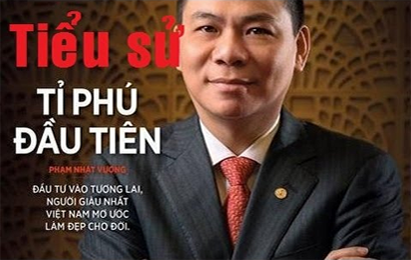Unit 8: THE STORY OF MY VILLAGE
Phần I TỪ MỚI
|
Word |
Transcript |
Audio |
Meaning |
Example |
|
atmosphere (n) |
/ˈætməsfɪə(r)/ |
|
không khí |
These plants love warm, humid atmospheres. |
|
better (v) |
/ˈbetə(r)/ |
|
cải thiện, làm cho tốt hơn |
The work he produced early in his career has never really been bettered. |
|
brick (n) |
/brɪk/ |
|
gạch |
The school is built of brick. |
|
bumper crop |
/ˈbʌmpə(r) krɒp/ |
|
vụ mùa bội thu |
I want to have bumper crops. |
|
cash crop |
/kæʃ krɒp/ |
|
cây trồng thương phẩm |
I want to plant cash crops |
|
crop (n) |
/krɒp/ |
|
mùa màng |
Sugar is an important crop on the island. |
|
farming method |
/ˈfɑːmɪŋ ˈmeθəd/ |
|
phương pháp canh tác |
He has learned some farming methods from the professors |
|
flooded (a) |
/ˈflʌdɪd/ |
|
bị ngập lụt |
We suffered from flooded fields. |
|
holiday resort |
/ˈhɒlədeɪ rɪˈzɔːt/ |
|
khu nghỉ, thành phố du lịch |
a popular holiday resort |
|
last (v) |
/lɑːst/ |
|
kéo dài |
The meeting only lasted (for) a few minutes. |
|
mud (n) |
/mʌd/ |
|
bùn, đất ướt nhão |
The car wheels got stuck in the mud. |
|
muddy (a) |
/ˈmʌdi/ |
|
lầy lội |
Look, you’ve made the floor all muddy! |
|
raise (v) |
/reɪz/ |
|
nắng lên |
She raised the gun and fired. |
|
resurface (v) |
/ˌriːˈsɜːfɪs/ |
|
trải lại (mặt đường) |
The submarine resurfaced. |
|
shortage (n) |
/ˈʃɔːtɪdʒ/ |
|
sự thiếu thốn |
There is no shortage of (= there are plenty of) things to do in the town. |
|
straw (n) |
/strɔː/ |
|
rơm rạ |
a mattress filled with straw |
|
widen (v) |
/ˈwaɪdn/ |
|
mở rộng |
Her eyes widened in surprise. |
Phần II CÁC KIẾN THỨC CẦN HỌC
A. PRONUNCIATION : /aʊ/ vs /əʊ/
|
/aʊ/ |
/əʊ/ |
|
house /haʊs/ |
go /ɡəʊ/ |
|
mouse /maʊs/ |
low /ləʊ/ |
|
loud /laʊd/ |
fold /fəʊld/ |
|
town /taʊn/ |
told /təʊld/ |
|
found /faʊnd/ |
hold /həʊld/ |
B. GRAMMAR
I. REPORTED SPEECH: STATEMENTS
1. Lời nói gián tiếp (indirect/reported speech)
Là lời tường thuật lại ý của người nói, đôi khi không cần phải dùng đúng những từ của người nói.
Ex: Bill said that he didn’t like that party.
2. Những thay đổi trong lời nói gián tiếp:
a. Thay đổi động từ: Thì của các động từ trong lời nói gián tiếp thay đổi theo một nguyên tắc chung là lùi về quá khứ (các thì xuống cấp)
|
Direct Speech |
Reported Speech |
|
1. Present Simple:V1 Ex1: Nam said “I am told to be at school before 7 o’clock” Ex2: He said “ I like beer”
2. Present Progressive: am/is/are +Ving Ex: He said “I’m watching TV”
3. Present Perfect: has/have + V3/ed Ex: He said “ I have just bought a new book”
4. Past Simple: V2/ed Ex: They said “ We came by car ”
5. Past Progressive: was/were + V-ing Ex: He said “I was sitting in the park at 8 o’clock”
6. Past Perfect: had + V3/ed Ex: She said “ My money had run out”
7. Future Simple: will +V without to (V0) Ex: Lan said “I’ll phone you”
8. can Ex: He said “ you can sit here”
9. may Ex: Mary said “I may go to Ha noi again”
10. must Ex: He said “I must finish this report” |
1. Past Simple:V2/ed EX1: Nam said (that) he was told to be at school before 7 o’clock. Ex2: He said (that) He liked beer
2. Past Progressive:was/were+Ving Ex: He said (that) he was watching TV
3. Past Perfect: had + V3/ed Ex: He said (that) I had just bought a new book
4. Past Perfect: had + V3/ed Ex: They said (that) they had come by car
5. was/were+V-ing or Past Perfect progressive Ex:-He said ( that ) he was sitting in the park at 8 o’clock” - He said ( that )he had been sitting in the park at 8 o’clock”
6. Past Perfect: had + V3/ed Ex: She said ( that) her money had run out
7. would + V without to ( Vo) Ex: Lan said ( that) she would phone me
8. could Ex : He said ( that) we could sit there
9. might Ex: Mary said ( that) shemight go to Ha noi again
10. must/ had to Ex: He said ( that)he had to finish that report |
* Chú ý: Một số trường hợp không đổi thì của động từ trong câu gián tiếp:
- Nếu động từ ở mệnh đề giới thiệu được dùng ở thì hiện tại đơn, hiện tại tiếp diễn, hiện tại hoàn thành hoặc tương lai đơn, thì của động từ trong câu gián tiếp vẫn không thay đổi
Eg: He says/ he is saying/ he has said/ he will say, “the text is difficult”.
⇒ He says/ is saying/ has said/ will say (that) the text is difficult.
- Khi câu nói trực tiếp thể hiện một chân lý hoặc một hành động lặp lại thường xuyên, thì của động từ trong câu gián tiếp vẫn không thay đổi
Eg: My teacher said “The sun rises in the East”
⇒ My teacher said (that) the sun rises in the East.
He said, "My father always drinks coffee after dinner"
⇒ He said (that) his father always drinks coffee after dinner.
- Nếu lúc tường thuật, điểm thời gian được đưa ra trong lời nói gián tiếp vẫn chưa qua, thì của động từ và trạng từ thời gian vẫn được giữ nguyên
Eg: He said, “ I will come to your house tomorrow”
⇒ He said (that) he will come to my house tomorrow.
- Câu trực tiếp có dạng câu điều kiện loại 2 hoặc loại 3:
Eg: He said; “If I knew her address, I would write to her”
⇒ He said that he would write to her If he knew her address
Eg: She said, “If I had enough money, I would buy a new bicycle.”
⇒ She said (that) if she had enough money, she would buy a new bicycle.
- Tuy nhiên nếu lời nói trực tiếp là câu điều hiện loại 1 thì được chuyển sang loại 2 ở lời nói gián tiếp
Eg: The advertisement said; “If you answer the questions correctly, you may win one million dollar”.
⇒ The advertisement said that I might win one million dollar If I answered the questions correctly.
- Không thay đổi thì của mệnh đề sau “wish’
Eg: He said; “I wish I had a lot of money”
⇒ He wishes (that) he had a lot of money
- Không thay đổi thì của mệnh đề sau “It’s (high/ about) time”
Eg: She said; “It’s about time you went to bed; children”
⇒ She told her children that It’s about time they went to bed
- Không thay đổi thì của mệnh đề đi sau ‘would rather, would sooner”
Eg: She said; “I would rather you stayed at home”
⇒ She said that she would rather I stayed at hone
- Không thay đổi thì của: could, would, might, should, ought, had better, need trong câu gián tiếp
Nhưng must → had to/ must
Eg: She said; “I could do the homework"
⇒ She said that she could do the homework.
- Động từ trong câu nói trực tiếp có thời gian xác định:
Eg: He said, “I was born in 1980”
⇒ He said that he was born in 1980.
- Mệnh đề trạng ngữ chỉ thời gian trong câu phức có thì quá khứ đơn và quá khứ tiếp diễn
Eg: “I saw him when he was going to the cinema”.
⇒ She said she saw him when she was going to the cinema.
b. Thay đổi về đại từ nhân xưng, đại từ sở hữu, tính từ sở hữu:
*Đại từ nhân xưng
Chủ ngữ
|
Trực tiếp |
Gián tiếp |
|
I |
He, she |
|
we |
they |
|
You |
They/ he/ she/ I |
Tân ngữ
|
Trực tiếp |
gián tiếp |
|
Me |
Him/ her |
|
us |
Them |
|
you |
Them/ him/ her |
*Tính từ sở hữu
|
Trực tiếp |
Gián tiếp |
|
my |
His/ her |
|
our |
Their |
|
your |
Their/ his/her/ my |
*Đại từ sở hữu
|
Trực tiếp |
Gián tiếp |
|
mine |
Him/ hers |
|
ours |
Theirs |
|
yours |
Theirs/ his/ hers |
c. Thay đổi về từ chỉ thời gian và nơi chốn:
|
Trực tiếp |
Gián tiếp |
|
Today/ tonight |
that day/ that night |
|
Yesterday |
the day before/ the previous day |
|
last month/ night … |
the month before / the previous month/ night |
|
Tomorrow |
the following day/ the next day |
|
this moth |
that month |
|
The day before yesterday |
two days before |
|
The day after tomorrow |
in two days’ time |
|
next month |
the month after / the following month |
|
Here |
there |
|
Now |
then |
|
Ago |
before |
|
This |
that |
|
These |
those |
* NOTE:
- Nếu tường thuật vẫn cùng ở một địa điểm và thời gian, chúng ta không thay đổi thì của động từ, tính từ chỉ định và trạng ngữ thời gian và nơi chốn.
Eg: He said “ I will come here to take this book tonight”.
⇒An hour ago he said he will come here to take this book tonight.
- Thêm liên từ vào câu tường thuật chỉ nguyên nhân
Eg: She said “ I am very tired I have worked overnight.”
⇒ She said she was very tires because she had been worked.
II. CONDITIONAL SENTENCE TYPE 1
Câu điều kiện loại I còn được gọi là câu điều kiện có thực ở hiện tại. Ta dùng câu điều kiện loại I để đặt ra một điều kiện có thể thực hiện được trong hiện tại và nêu kết quả có thể xảy ra.
STRUCTURE : If+ S+V, S+will+V
Nói cách khác, ở câu điều kiện loại 1, mệnh đề IF dùng thì hiện tại đơn, mệnh đề chính dùng thì tương lai đơn.
Ex : - If you come into my garden, my dog will bite you. (Nếu anh bước vào vườn của tôi, con chó của tôi sẽ cắn anh.)
- If it is sunny, I will go fishing. (Nếu trời nắng tốt, tôi sẽ đi câu cá.)











